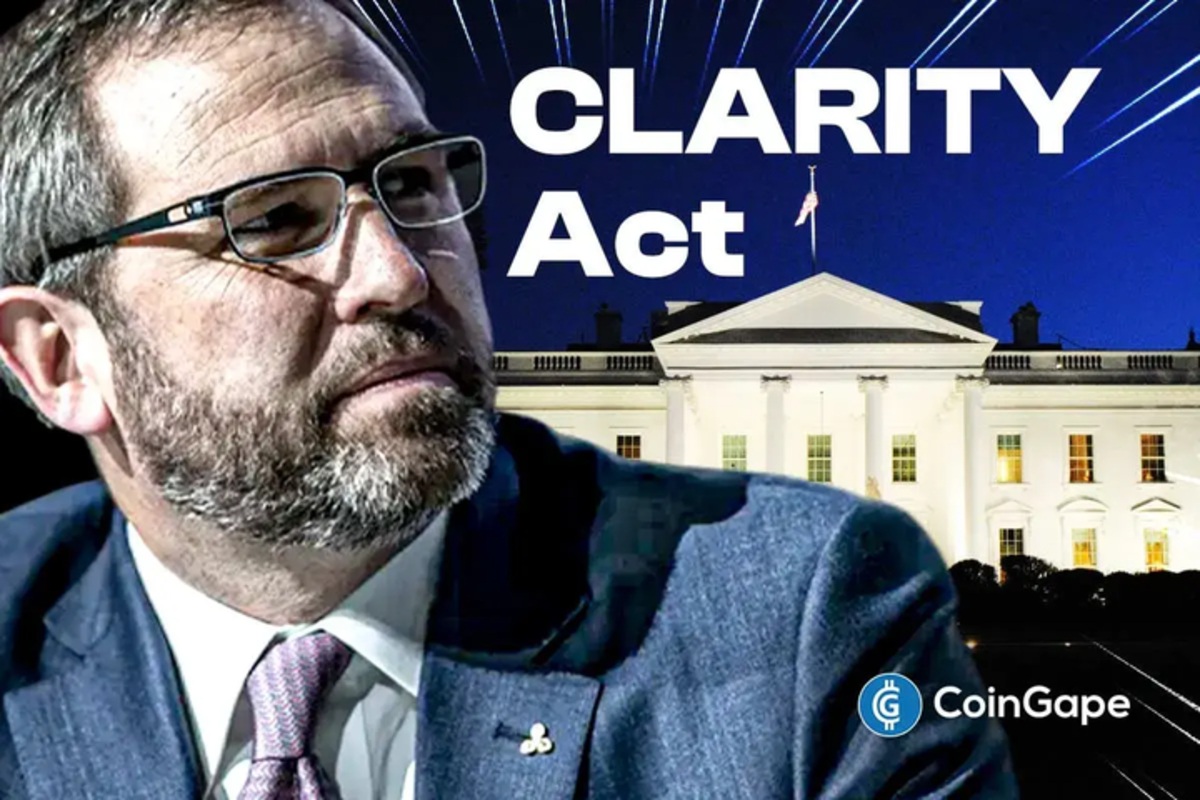Ripple CEO Slams US SEC For XRP Security Claim In Bitnomial Case

Highlights
- Ripple CEO calls SEC's defiance of court's non-security ruling on XRP 'above the law.
- Bitnomial sues SEC, claims XRP futures regulation by CFTC, not SEC.
- Legal experts slam SEC for ignoring court verdict, allege regulatory overreach.
Ripple CEO Brad Garlinghouse has accused the U.S. Securities and Exchange Commission (SEC) of ignoring a court decision that determined XRP is not a security as the regulator still claims. He made the remarks following the agency’s stand in the Bitnomial case which saw the crypto derivatives exchange go to court against the SEC over the classification of XRP futures.
Ripple CEO Slams US SEC For XRP Security Claim
Brad Garlinghouse voiced his anger regarding the US SEC’s actions in a post on X (formerly Twitter), noting that the agency does not seem to care that, according to a court’s decision, XRP is not a security. He pointed out that the agency’s behavior proves that it thinks it can act beyond the law, questioning the regulator’s responsibility.
Ripple’s Chief Legal Officer Stuart Alderoty also commented on the agency’s position in the Bitnomial case saying that one has to wonder about the legitimacy of a regulatory agency that simply ignores a court decision. According to Alderoty, the US SEC has embarked on unconstitutional aggressive measures in the case and this further erodes the credibility of the agency.
He cited a rather worrying situation where a regulatory body after being defeated in court orders compliance through threats of enforcement in clear disregard of court orders.
Bitnomial Lawsuit Challenges US SEC’s XRP Futures Stance
The case in Bitnomial involves the US SEC’s assertion that XRP futures are ‘security futures,’ which subjects them to more rules than those set by the Commodity Futures Trading Commission (CFTC).
Bitnomial, a crypto derivatives exchange, declared that the XRP futures should fall under the jurisdiction of CFTC only, as XRP has not been registered as a security. In its complaint filed with the U.S. District Court for the Northern District of Illinois, Bitnomial claimed that the SEC’s requirement of the company to register as a national securities exchange is an undue regulatory burden.
Aligning with the Ripple CEO, the exchange also noted that the SEC’s position is in direct conflict with the court’s decision in the case where the court held that XRP itself was not a security. Bitnomial’s challenge is the latest in a long-standing feud between the agency and the crypto industry over the agency’s approach to regulating digital assets.
Concerns Over Regulatory Overreach
The Bitnomial case is the latest development in the U.S. Securities and Exchange Commission ongoing efforts to regulate cryptocurrencies. Despite losing the court battle with Ripple, the agency’s continued insistence that XRP is a security has drawn widespread criticism from the crypto community.
Aligning with the Ripple CEO, Pro-XRP lawyer Bill Morgan and other legal experts have accused the SEC of overreaching its authority and disregarding legal precedents.
I fought @GaryGensler’s @SECGov on behalf of 75K XRP token holders, including 627 here in MA. I did it all pro bono and spent $75,000 of my own money prosecuting the case. Every time I believed the SEC couldn’t degrade itself any further, the lawyers at the SEC proved me wrong. A… https://t.co/NThDe7whb1 pic.twitter.com/TwbNlLM4ow
— John E Deaton (@JohnEDeaton1) October 11, 2024
Concurrent with Ripple CEO, John Deaton, who represented XRP holders in the Ripple case, also criticized the U.S. Securities and Exchange Commission’s conduct. He pointed out that the agency has been found to act “arbitrary and capricious” in its enforcement, a severe legal standard to meet. Deaton also referenced a recent case involving the crypto firm Digital Licensing (Debt Box), where the SEC was sanctioned for misconduct, further adding to concerns about the agency’s regulatory practices.
Play 10,000+ Casino Games at BC Game with Ease
- Instant Deposits And Withdrawals
- Crypto Casino And Sports Betting
- Exclusive Bonuses And Rewards

- Breaking: Bitcoin Price Rises to $70k as Gold Crashes Amid U.S.-Iran Conflict
- Bitcoin News: Anthony Pompliano’s ProCap Buys 450 BTC, Gold Bug Peter Schiff Reacts
- Fed Rate Cuts More Likely If U.S.-Iran Conflict Extends, Arthur Hayes Predicts
- Breaking: Ethereum Treasury BitMine Adds 50,928 ETH as Tom Lee Predicts March Bottom For Crypto Prices
- Bitget Champions Women’s Role in Crypto as Part of International Women’s Day Campaign
- Pi Coin Price Prediction for March 2026 Amid Network Upgrade, KYC Boost, Rewards Distribution
- Gold Price Nears ATH; Silver Eyes $100 Breakout on Us- Iran War
- Bitcoin And XRP Price As US Kills Iran Supreme Leader- Is A Crypto Crash Ahead?
- Gold Price Prediction 2026: Analysts Expect Gold to Reach $6,300 This Year
- Circle (CRCL) Stock Price Prediction as Today is the CLARITY Act Deadline
- Analysts Predict Where XRP Price Could Close This Week – March 2026

 Buy $GGs
Buy $GGs















